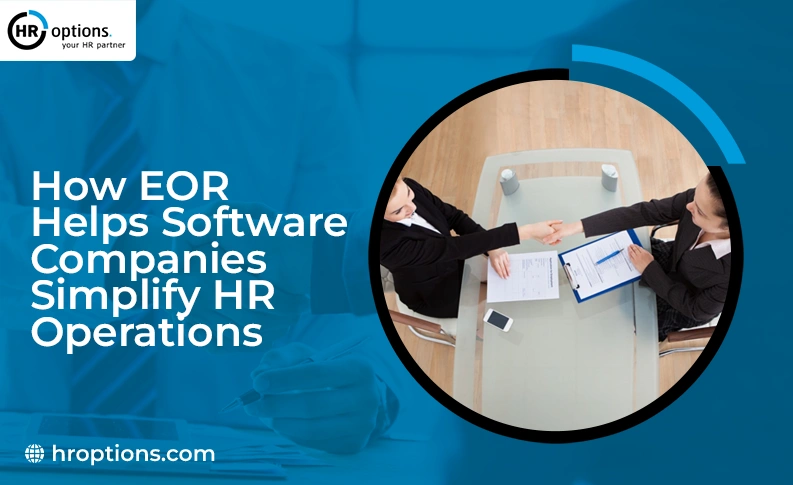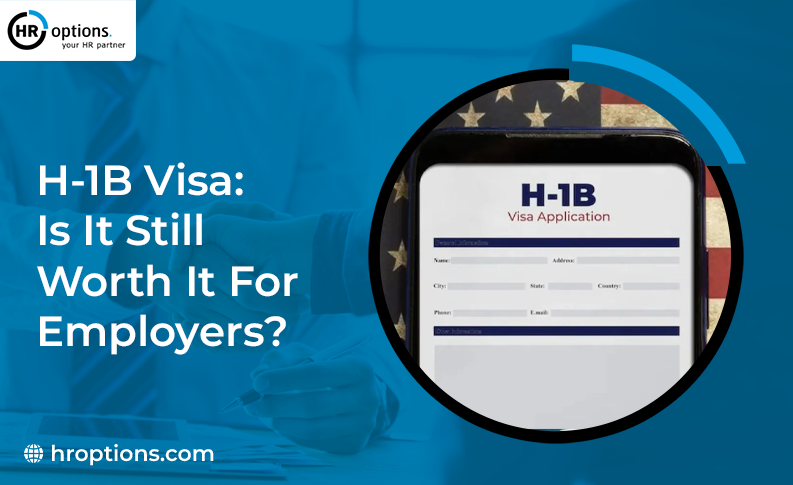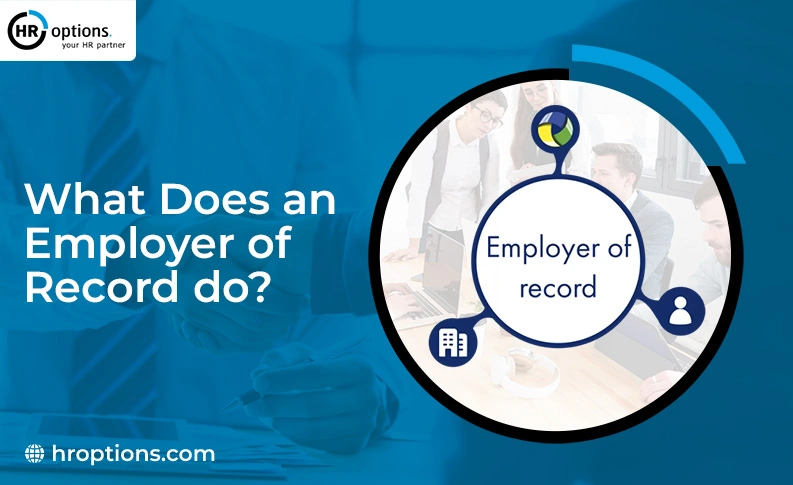Keeping HR organized gets harder as software companies scale. Between hiring across borders, managing tax obligations, and keeping up with shifting labor laws, even small tasks can become overwhelming. An Employer of Record (EOR) offers benefits to manage it all without overloading your internal team. It handles HR operations from onboarding to offboarding and applies the right labor standards based on location.
An EOR also takes care of payroll and taxes, benefits and insurance, and global hiring compliance. When your company is growing or restructuring, it helps maintain consistency and reduce risk. That level of support helps software companies simplify HR operations while staying compliant at every step.
Ways an EOR Helps Software Companies Simplify HR with Less Hassle
Let’s take a closer look at how EOR support makes HR simpler and more reliable for growing software teams.
1. Eliminates the Need for In-House HR Infrastructure
For early-stage or scaling software companies, building an HR department takes time and money. An EOR takes on core HR tasks like onboarding, payroll processing, benefits coordination, and compliance tracking.
Instead of hiring full-time HR staff or managing fragmented systems, your team gets a complete solution through one partner. This is especially helpful for founders or operations leads who are managing people but aren’t HR experts. It keeps things running without requiring internal headcount or infrastructure.
2. Ensures Proper Worker Classification From Day One
Tech companies often hire a mix of contractors, freelancers, and full-time employees. Misclassifying any of them can lead to legal trouble. An EOR ensures each worker is properly classified under the correct employment type, with the right contracts and documentation in place.
This classification protects your company from fines, lawsuits, or audits related to worker misclassification. It also helps with clearer expectations around pay, benefits, and responsibilities from the start.
3. Manages Local Labor Law Compliance for Remote Teams
Many software companies now hire remote developers, designers, or support staff across multiple states or even countries. Labor laws change based on location, and staying current is difficult without dedicated legal help.
EORs monitor regional labor laws and ensure your policies align with local rules. Whether it’s minimum wage laws, paid leave, or notice periods, EORs apply the correct standards so your team stays legally protected.
4. Handles Payroll, Tax Filing, and Employee Compensation
Payroll mistakes can cause payment delays, tax penalties, and employee dissatisfaction. An EOR manages all aspects of payroll, including pay schedules, tax withholdings, end-of-year reporting, and local currency payouts if needed.
It ensures everything is processed correctly and on time. Your finance team doesn’t have to worry about learning multiple tax systems or filing deadlines. This helps maintain employee trust while avoiding unnecessary financial exposure.
5. Oversees Benefits, Insurance, and Time-Off Tracking
Benefits are a big part of retaining top tech talent, but setting them up is time-consuming and often confusing. EORs coordinate with insurance providers, manage open enrollment periods, and ensure legal compliance with health coverage and paid time off.
It also keeps track of usage and eligibility. Your team members get access to comprehensive benefits packages without your internal staff needing to manage plans, paperwork, or renewals.
6. Supports Fast, Compliant International Hiring
If your software company wants to hire talent from outside its home country, doing so legally requires setting up a foreign entity or navigating unfamiliar regulations. EOR providers already have legal entities in place across multiple regions.
They can employ workers on your behalf. An EOR can also handle contracts, benefits, payroll, and compliance according to local laws. That means you can test new markets or hire global talent without risking legal violations or delays.
7. Reduces HR Errors During Rapid Growth or Restructuring
When software companies raise funding, merge teams, or pivot directions, HR often gets messy. Mistakes during these transitions, like missed contracts, incorrect terminations, and delayed onboarding, can lead to lost time and compliance issues.
An EOR brings structure to periods of change. It makes sure every hire or exit is properly documented, every benefit is updated, and every payroll entry is accurate. This creates consistency, even during rapid or unpredictable growth phases.
Conclusion
HR can become a major obstacle for software companies, especially when hiring quickly or expanding into new regions. EORs step in to take care of the details, offering support across every part of the employee lifecycle. They help by handling HR without needing internal staff, setting up correct classification, and making sure each location follows the law.
They also manage payroll, take care of benefits and insurance, assist with global hiring, and reduce the chances of mistakes during major changes. By working with an expert EOR like HR Options, software companies can simplify HR operations and gain time to focus on the work that really matters.








